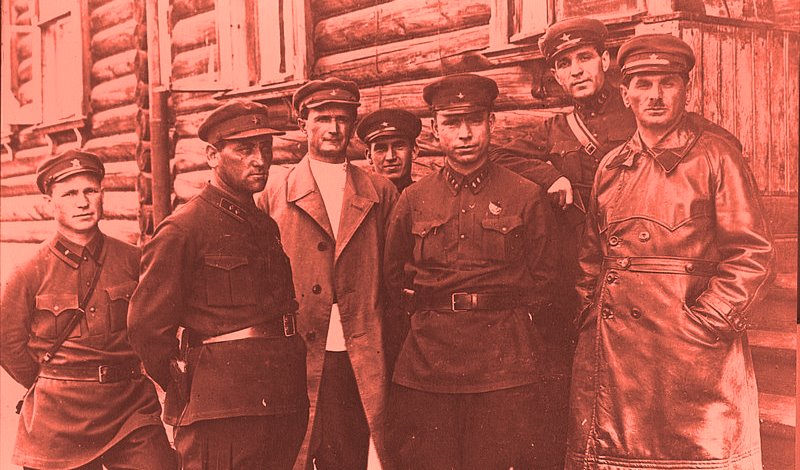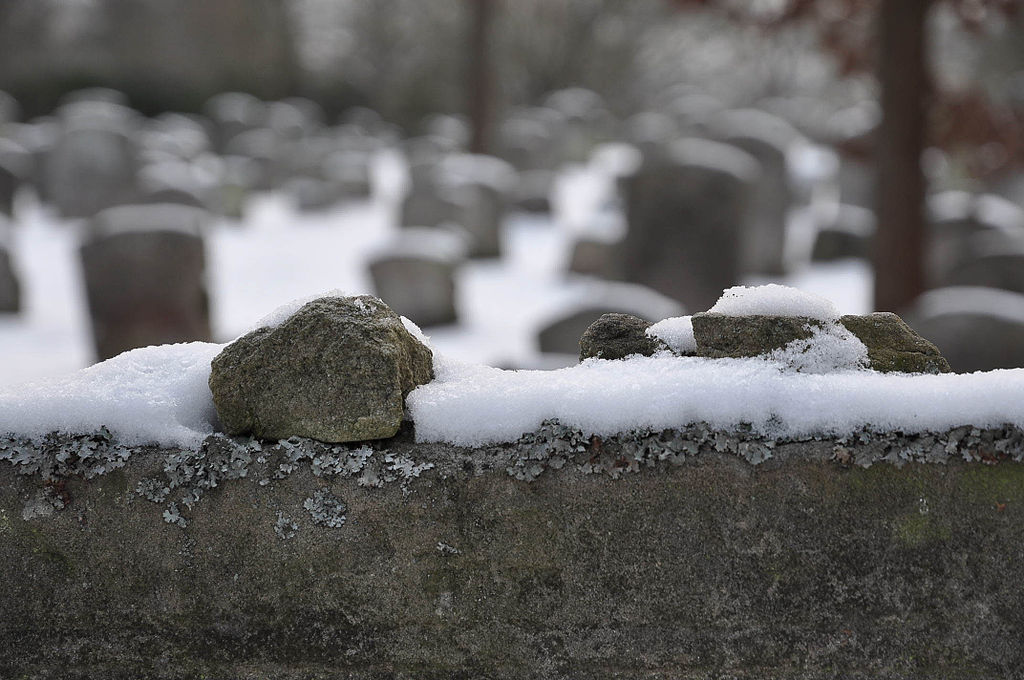for Robert Conquest
I.
Each day Naftaly greets a prison train.
Two days ago: spies and reactionaries,
yesterday: kulaks from Ukraine,
this morning: counter-revolutionaries.
Snug in his fur behind militia guards
who hold thick water hoses in the snow,
he looks at blue-lipped prisoners in cars,
exposed to frost of twenty-five below.
He tells the “fascist cattle” to undress
because they’re going “to take nice warm baths.”
“Enjoy this hot Siberian steam,” he says,
then slams the door. Behind it, no one laughs.
Not the young mother and her infant son,
not the old teacher leaning on his cane,
not the wry poet and the tender nun
whose final prayers and tears are frozen rain.
II.
Only the strong make it to Magadan
to labour for a crumb or crust of bread,
a spoon of fish-bone soup. Tonight each man
is one of many pillars that must tread
through ice and snow from toil in the mines.
Now they rest in the barracks. Half are gone,
completely at odds with their freezing minds,
and half won’t live to see the light of dawn.
Together they stand, leaning up along
the walls to shore the gaping holes and cracks.
The weakest are supported by the strong,
those who wear rags and old potato sacks.
And every now and then one hears a cry,
not of agony, — but of despair,
as time and justice pass the pillars by
and barracks dim with each forsaken prayer.
III.
And when I look down at the crimson map
I see the countless trains in permafrost,
and I see Frenkel, the star on his cap
above the twenty million who were lost.
I hear the broken Russian in each command;
The pillars and barracks rise up from the page
of the great Atlas, and I understand
the architecture of that place and age.
Leo Yankevich’s latest books are The Last Silesian (The Mandrake Press, 2005) Tikkun Olam & Other Poems (Second Expanded Edition), (Counter-Currents Publishing, 2012), and Journey Late at Night: Poems & Translations (Counter-Currents Publishing, 2013). He is editor of The New Formalist. More of his work can be found at LeoYankevich.com.
















As always, a powerful poem, expertly crafted, with just enough heartbreaking detail to show what the individual suffers at the hands of iron-fisted ideology.
Thank you,. Leo – you do not disappoint.
Bravo!
Very powerful – you brought tears to my eyes.
Extraordinarily powerful, and ironic as the precursor to Auschwitz and beyond, and all the horror that meant to Frenkel’s own Jewish background! This is all allied to a wonderfully crafted poem. Thank you for the sadness – it is important that we sometimes are.
A poem of this nature virtually explodes the framework of literature. It is a burning brand of history, testament, pity, outrage, and condemnation all put into a small space of language. This is more than a poem — it is a grenade.
This poem makes me think that perhaps we should go back to having our bards teach us history – not a dry recitation of timelines and statistics, but a well-crafted punch of powerful images that place us in the story, plant it in our hearts, and warn us of our capacity for cruelty. I don’t know that we have enough poets with such mastery of the art. I have been haunted by this since I read it this morning. Dr. Salemi is right to label it a grenade.
This is a moving poem which brings us by skillful execution to a sordid place in history.
Thank you all for your comments.
A marvellous poem – compelling, taut, and visceral. There is in the final section some incredible writing that it would take a whole book to unpack; but, for example, the brilliance of the ‘countless trains’ versus the [one] ‘star on his cap’. Here the whole history of humanity, of what it means to be human, is inverted, for instead of their being ‘countless stars’ and one train (or possibly a few), the mechanical trains have taken over from the wonder of the countless stars in God’s creation. One is reminded of the last line of Dante’s Inferno when with relief from hell he emerges to see the stars. How awful this is in reverse: the one star on the cap of Frenkel. Superb.
Thank you, Leo, for this stinging poem that raises our humanity.
I admire the factual detail of the lists of people, their itemized torture, and your statement that this goes beyond agony to despair — of time, justice, and prayer.
The poem is in the present tense throughout and brings us into the present day by the ‘I’ in the last stanzas. Here there is also emotional restraint – ‘maps’ and ‘architecture’ can be seen and walked into, and are not as easily lost as the bodies of the human millions.
I note that your poem is “for Robert Conquest” whose books stand against those who would marginalize the killing and genocides of communism.
The real and the imagined cannot truly ever be brought together, but when one’s nerve ends are severely pinched so that an icy atmosphere, as well as appalling cruelty becomes an internal pain, then the poet has placed the reality of what happened then into the mind of the reader. Fantastic stuff.